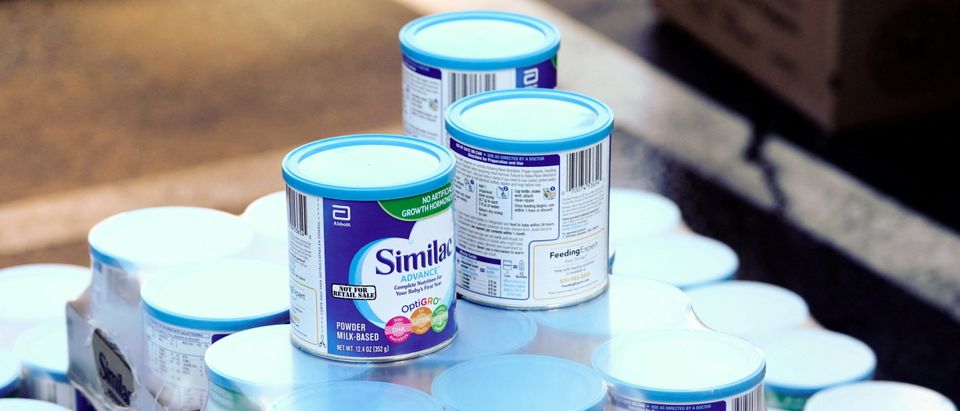The Food and Drug Administration (FDA) has reached a deal with Abbott Laboratories that will allow the company to begin producing baby formula once again at its Sturgis, Michigan plant.
The agency helped Abbott initiate a voluntary recall and shutdown of new production of its formula in February after the Michigan factory was linked to several bacterial outbreaks in infants in the last year. The company said Monday that the consent decree should lead to production ramping back up within a couple of weeks of the FDA approving its reopening, and more formula would be on shelves six to eight weeks thereafter.
Breaking News: The FDA reached an agreement with Abbott Laboratories that could reopen the company’s baby formula plant to help ease a nationwide shortage. https://t.co/79Kb2dnzMR
— The New York Times (@nytimes) May 16, 2022
Abbott has maintained that there’s no conclusive evidence showing that its formula is responsible for the illness or death of any infants. It said that FDA inspectors found the bacteria, called Cronobacter sakazakii, in areas of its plant away from the production lines, and that the Centers for Disease Control and Prevention (CDC) performed a genetic test showing that the strains of cronobacter found in the infants were different than the ones found in the factory.
Nonetheless, the FDA has kept the factory shut down for three months as the nationwide shortage of baby formula worsened. The Biden administration addressed the shortage last week, saying that the FDA was doing everything it could to correct the issue. (RELATED: White House Spox Tries To Spin Baby Formula Shortage, But CNN Host Interjects)
FDA Commissioner Robert Califf said Monday that the agency is working to address other supply chain issues as well and that American parents could expect things to be “back to normal” within a few weeks, according to The New York Times.
“Today’s action means that Abbott Nutrition has agreed to address certain issues that the agency identified at their infant formula production facility in Michigan. The public should rest assured that the agency will do everything possible to continue ensuring that infant and other specialty formulas produced by the company meet the FDA’s safety and quality standards, which American consumers have come to expect and deserve,” Califf said in a statement Monday.


